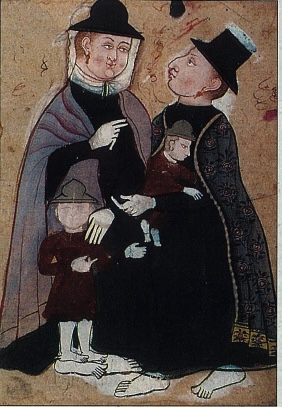By Vamadeva Shastri
The Christian activities in India are not unique. In fact, they are in lock step with more than 1,500 years of history, as points out ex-Catholic and now Hindu and Vedic scholar Vamadeva Shastri.
Christianity has mainly been an outward-looking religion seeking to convert the world. It has rarely examined its own motives or the harm that such missionary activity has caused, even though the history of its missionary activity has been tainted with intolerance, genocide and the destruction not only of individuals but of entire cultures. There should be open and friendly discussion and debate about religion just as there is about science. But when one religion creates an agenda of conversion and mobilizes massive resources to that end, targeting unsuspecting, poor or disorganized groups, it is no longer a free discussion. It is an ideological assault. It is a form of religious violence and intolerance.
The missionary business remains one of the largest in the world, and has enormous funding on many levels. There are full-time staffs and organizations allocating money, creating media hype, plotting strategies and seeking new ways to promote conversion. The local native religion has about as much chance against such multinational incursions as a local food seller has if McDonald’s moves into his neighborhood with a slick, well-funded advertising campaign targeting his customers. Yet while many developing countries have government policies to protect local businesses, they usually don’t have any mechanism to protect local religions.
We are talking about a religious effort towards world conquest that is quite happy to put an end to other religious traditions–that looks to establish one particular religion for all human beings, in which the diversity of human religions is discredited and forgotten. Regions where missionary activity has been successful have seen their older traditions demoted or destroyed, whether it is those of the pagan Europeans, the Native Americans or the pre-Islamic Arabs. Hinduism would likely fall along the same wayside should it lose the battle against missionary religions, just as Hinduism in Islamic Pakistan has all but disappeared.
Missionary activity and conversion is not about freedom of religion. The missionary wants to put an end to pluralism, choice and freedom of religion. He wants one religion, his own, for everyone and will sacrifice his life to that cause.
Organized conversion on a mass scale hardly existed anywhere in the world before the advent of Christianity some two thousand years ago. It became particularly strong after the Roman Empire became Christian in the fourth century. This resulted in a Roman or imperial church that used the resources of the empire, including the army, to promote the religion, which was a state institution. Church and state became closely tied, and one was used to uphold the other. This alliance of church and state occurred well into the Middle Ages and into the nineteenth century throughout much of Europe.
When Christianity became the state religion of the Roman Empire, because of the belief that it alone was the true religion, the Empire’s former tolerance of other religions ended. Pagan temples and schools were closed, if not replaced by churches or even destroyed. Even the great Platonic academy in Athens was shut down. Paganism in all of its forms was eventually banned as not only false, but also as immoral and illegal.
In the colonial period, Christian missionary activity spread throughout the world and brought with it a great violence and intolerance that continued the anti-pagan crusades as part of colonialism. Missionary efforts in the colonial period, with some exceptions, contributed to or even brought about the tremendous genocide of native populations, not only in America but also in Africa and Asia. Native peoples had their religions banned, their holy places destroyed or taken over by the Christians. The history of the Spanish in Mexico and Peru in the sixteenth century is comparable to the Nazis of this century–if not worse–pillaging and plundering a continent in the name of and with the blessings of the church. However, missionary groups have done little to apologize, much less to atone, for the violence and hatred this five hundred years of colonialism created, and which destroyed many traditional religions and cultures.
Today it is illegal in most countries to promote racial hatred, to call a person of any race inferior or the product of the devil. But Hindus can still be denigrated as polytheists, idolaters and devil-worshippers. This is tolerated under freedom of religion, though it obviously breeds distrust, if not hatred, and itself is prejudicial.
Many missionaries claim today that they are not seeking converts but merely doing charity, trying to help the downtrodden in life. Given the mentality behind conversion efforts and its history, one can only greet that statement with skepticism, though in a few isolated instances it may be true. The very missionaries that only recently used colonial governments and armies to their advantage cannot be regarded as suddenly without any overt conversion motivations.
By Vamadeva Shastri (Dr. David Frawley), Albuquerque, New Mexico
